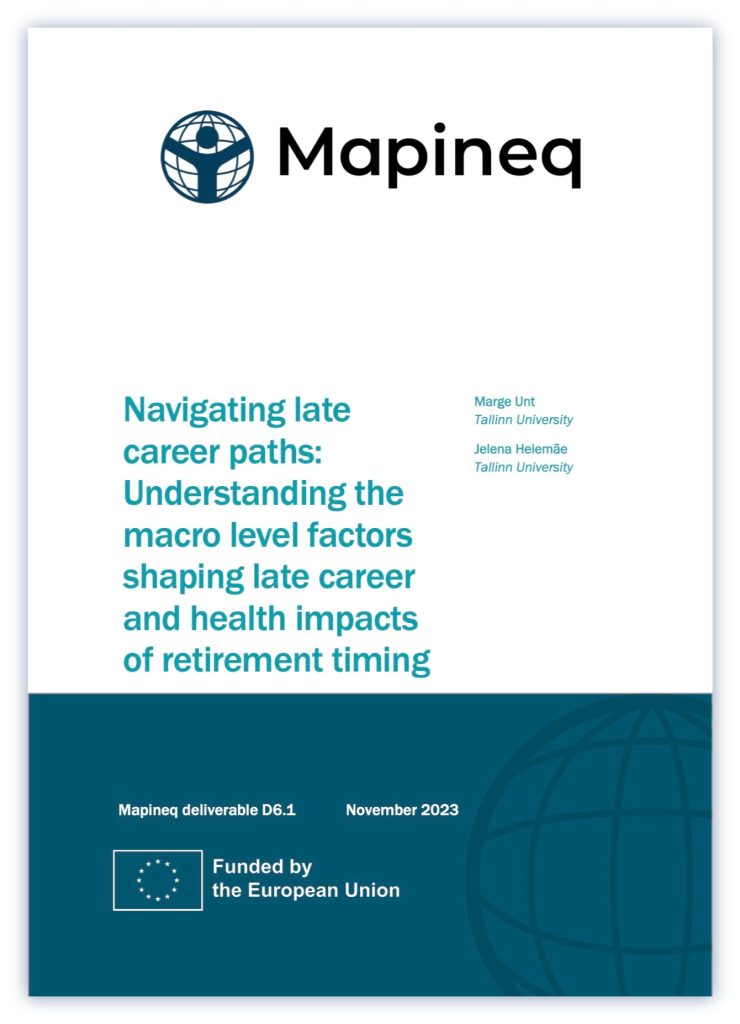Navigating late career paths: Understanding the macro level factors shaping late career and health impacts of retirement timing
This report investigates the institutional factors shaping late-career trajectories in the EU and their subsequent health effects. It assesses the transition from early retirement policies to policies aimed at extending working lives and the resultant implications for health, particularly in terms of inequalities among older workers. The study conducts a literature review, analysing the impact of retirement policies through push, pull, and stay factors, and how the late career relates to physical and mental health outcomes. Findings indicate that the consequences of extended working lives and retirement experiences are influenced by individual circumstances, job conditions, and wider welfare contexts, with significant heterogeneity across socioeconomic groups. The report suggests that cumulative (dis)advantages throughout one’s life course significantly affect health outcomes in later life. There is need for evidence of developing policies that not only facilitate longer working lives but also address health disparities and prevent increasing social inequality is highlighted. This underscores the need for equitable approaches that consider the varying health capacities of individuals in the context of extended working careers.
By Marge Unt adn Jelena Helemäe.

European retirement policies have evolved from supporting early retirement to encouraging longer working lives, driven by demographic shifts and fiscal sustainability needs. This transition, while bolstering pension system viability, has inadvertently heightened inequalities.

Although there is a push to increase the statutory retirement age, the actual health effects of such reforms are scarce. Drawing from micro level analysis, the extension of working life influences health outcomes in a nuanced manner, varying with socio-economic status and job conditions.

Balancing pension system sustainability with social equity is crucial for a retirement landscape. There is a need for coherent policies that make extending working life an appealing choice rather than a punitive imposition.

